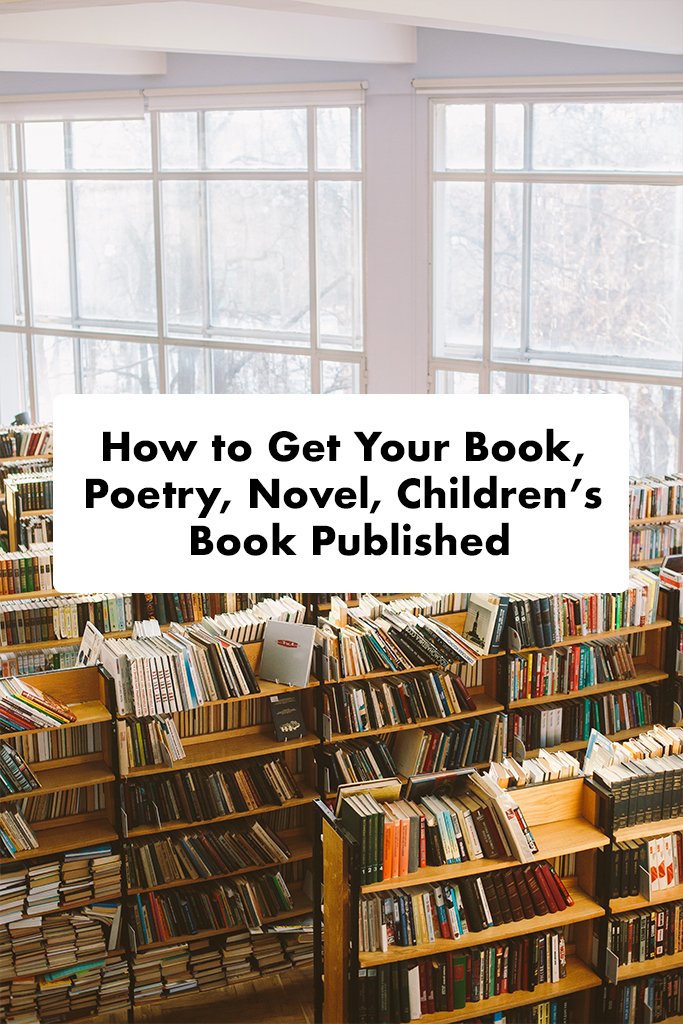If you’re a first-time author, it’s understandable that you may not know how to publish a book. Especially since there are so many different options available.
Table of Contents
Whether you are publishing a novel, poetry, or a children’s book, every author has to decide how they want to publish, and what the benefits are – including what they want out of the experience – wealth and fame, just to achieve a personal goal, or for a literary reputation.
Let’s walk you through how traditional publishing works as this is what most authors think about when wanting to get a book published. So, let’s see what it means to get published!
Step 1: Research
Ask hundreds of writing coaches, editors, and authors for advice on how to publish and the majority of them will agree that it’s worth reading widely in your genre.
The other few will likely assume that you’re already doing this. As an author, not only should you learn from contemporaries, but you should also know what types of books people buy.
This will give you a good idea about the types of books publishers want to purchase and how your publication will fit into this.

Step 2: Edit Your Manuscript
We assume your book is good; it doesn’t have to be the best novel ever produced, but it has to appeal to your target audience.
For this reason, it is important that the agent you choose is not the first person to read through your manuscript. Consider working with beta readers before you start looking for representation. Beta readers are people interested in your genre and they are able to give you feedback from another perspective.
Pay attention to their feedback and what they say so you can edit your manuscript yourself based on their opinions. You may also consider choosing a professional copy editor to work with. Professional editing can be a key step in ensuring that your manuscript is properly read through when your agent asks for it.

Step 3: Research and Find an Agent
Now that your manuscript is looking good and you understand who your target audience is, it’s time to do some thorough research and find an agent to work with. Not only will professional agents have the right industry contacts with various well-known publishers, but they will also know how to best sell it to the editors they are getting.
Besides, presenting the book to a publisher is just one of many different tasks that your agent will handle. They are also editors and advisers who will give you unbiased advice about your manuscript, and effectively act as a middle-man between the publisher and yourself.
They will take of the business side of things while you focus on writing and creating.
One of the most important benefits of working with a professional agent is that they know the industry well and have experience in negotiating the best price for your book (and also avoid possible scams!) This alone makes their commission worthwhile.
What Do Agents Look For
Remember that the goal of everyone in this business is ultimately to earn money. Most agents generally work on a commission basis, so they will of course look for books that are likely to be sold by Big Five publishers (or the Big Six if you include Amazon Publishing) – and thus would sell enough copies so that it justifies their initial investment.
Agents prefer to invest in long-term relationships. This means that they will bet more on writers who not only have the potential to write lots of great books but also seem to be nice people to collaborate with.
No matter how amazing your manuscript is if you look like an imaginary nightmare people will think twice about signing a contract with you.

Step 4: Preparation
If you didn’t receive a personal introduction, this is the normal procedure to follow to successfully land an agent for the first time:
You send the agent a short inquiry letter that introduces you and your novel.
If the agent is intrigued they will ask for your manuscript.
If they love your manuscript, you may enter into discussions about your book and your career.
You then sign a contract that allows the agent to represent your book.
Of course, that’s the best scenario. Most authors query multiple agents. It is a common myth that you should only talk to one agent at a time: no one, especially your agent, expects you to do so.
Remember that most agents get a mountain of inquiries every month. The good news is that most of the inquiries you receive are horrible, template messages that are copied and pasted blindly for each agent.

Step 5: Find a Publisher
You can expect to work with your agent to further develop your manuscript. In many cases, they will see the potential in your book and act as your first editor.
It’s best to discuss how to make your book sell better before signing a contract with them.
And when you’re both satisfied with the condition of your manuscript, it’s up to the agent to venture out into the wilds, present the book to publishers, and negotiate the best deal possible!

Landing a Deal with the Big 5
If you are an author who is currently trying to publish traditionally, you have undoubtedly heard of Big 5’s Penguin Random House, Hachette Livre, HarperCollins, Macmillan and Simon & Schuster.
All of these publishers have been around for decades, and the publication of a book by one of them is a golden ticket to prestige and recognition.
Keep in mind, however, that these publishers are quite selective, especially when it comes to novels.
And you have it. Remember: If you have a strong manuscript and a desire to put in your work, there is no reason why you should not be able to enter into a publishing deal yourself. We can’t wait to see your name on the shelves!













